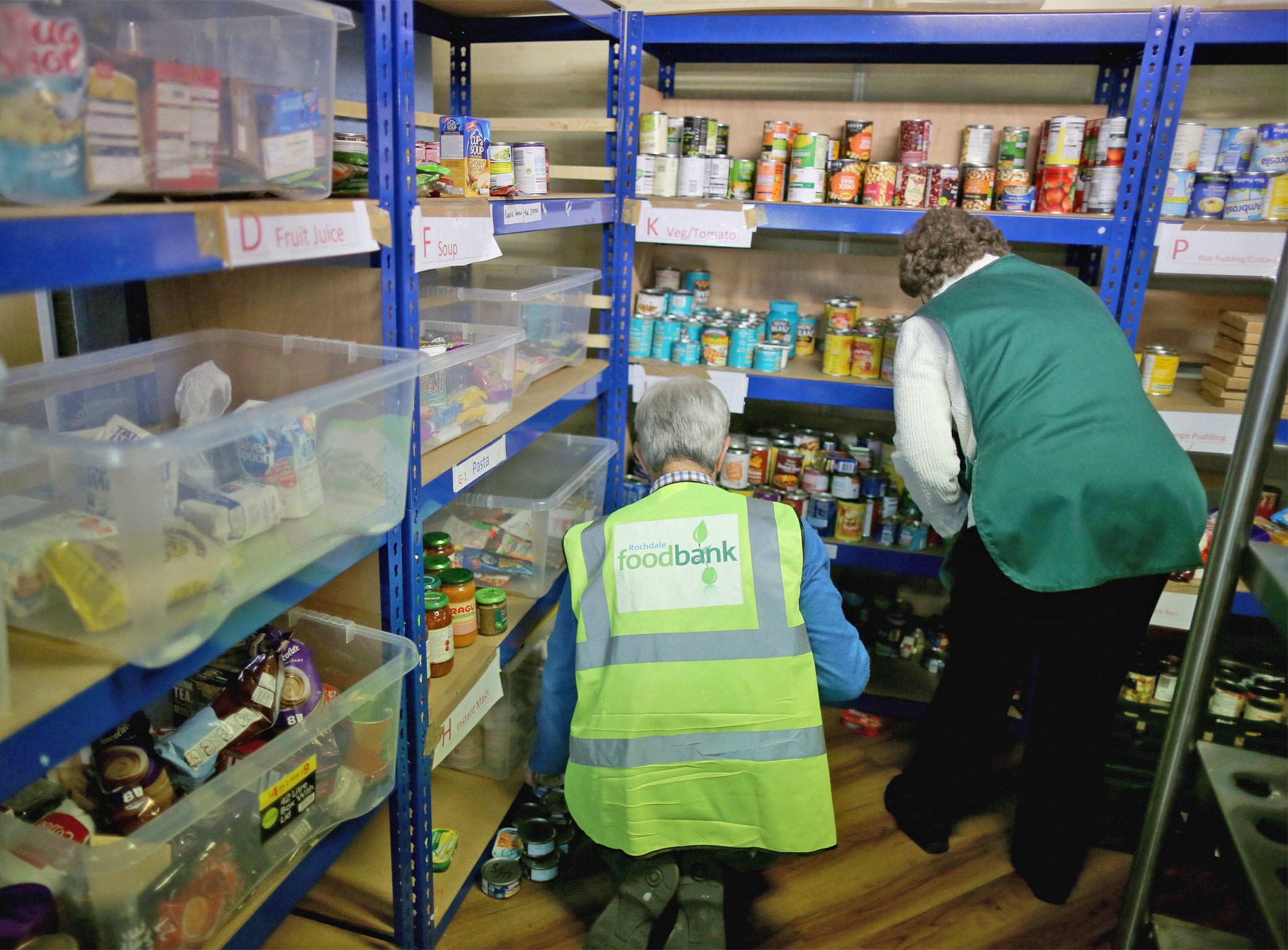Millions of families living in poverty despite being in employment says new study
More families than ever before are classified as poor despite adults having a job

Your support helps us to tell the story
From reproductive rights to climate change to Big Tech, The Independent is on the ground when the story is developing. Whether it's investigating the financials of Elon Musk's pro-Trump PAC or producing our latest documentary, 'The A Word', which shines a light on the American women fighting for reproductive rights, we know how important it is to parse out the facts from the messaging.
At such a critical moment in US history, we need reporters on the ground. Your donation allows us to keep sending journalists to speak to both sides of the story.
The Independent is trusted by Americans across the entire political spectrum. And unlike many other quality news outlets, we choose not to lock Americans out of our reporting and analysis with paywalls. We believe quality journalism should be available to everyone, paid for by those who can afford it.
Your support makes all the difference.There are more working families living in poverty in the UK than non-working families for the first time since the birth of the welfare state, according to a new study.
A report by a development charity attributes the figures to a sustained and “unprecedented” fall in living standards that has hit UK households, in which average incomes have fallen by 8% since a peak in 2008.
As a result, around 2 million people have an income that would have been considered below the poverty line in 2008.
The Joseph Rowntree Foundation (JRF) found that according to the current definition, the figure is increasing as 500,000 more working families live below the poverty line than last year.
6.7 million families with adults in employment meet the worrying criteria compared with a combined 6.3 million of retired and unemployed families.
There is also a smaller but growing number of people living on incomes below the value of out-of-work benefits in very deep poverty.
The JRF said 400,000 families have suffered from a combination of benefit cuts from the bedroom tax, and council tax benefit. Two thirds of these families were already classified as living in poverty.
The JRF also found positive changes, including an improvement in the labour market with falling unemployment and underemployment and, improvements in health and education outcomes forecast for the future.
There have also been major shifts in which groups are experiencing poverty, with the number of pensioners in poverty at a 30-year low.
Julia Unwin, chief executive of the charity, said efforts to reduce poverty must be “strengthen[ed]” and that for the poorest families “improving pay and prospects remain a mirage”.
She added:"Recent economic improvements do not outweigh the damage inflicted during the downturn to the incomes of the poorest people across the country.
"Our report demonstrates there has been progress in some areas and the tide has turned on employment, but this not been matched by improvements in wages.
The largest group in poverty are working age adults without dependent children - 4.7 million people are in this situation, the highest on record. Half of working families in poverty have an adult paid below the living wage.
It also found that job insecurity is increasingly common, with one in six members of the workforce claiming Jobseekers' Allowance at some point in the last two years.
Median incomes in the UK recorded in the 2011 tax year are now, in real terms, just below what they were in 2001 - £367 a week compared with £368 - the Monitoring Poverty and Social Exclusion report showed.
Plummeting incomes over the last two years has wiped out all the gains of the previous decade, the JRF said.
Families living in poverty are defined as those with income below 60% of median income for that year.
Peter Kenway, director at NPI and an author of the report, said: "Poorer members of society are under more pressure than at any time since the birth of the welfare state.
"The value of the safety net for working age adults is now sinking steadily. The support on offer to people who fall on hard times is increasingly threadbare, with benefit levels on a downward spiral.
"A strong safety net to catch those who fall is vital for social mobility - millions are saved by it every year even now - yet no leading politician will defend it."
Join our commenting forum
Join thought-provoking conversations, follow other Independent readers and see their replies
Comments